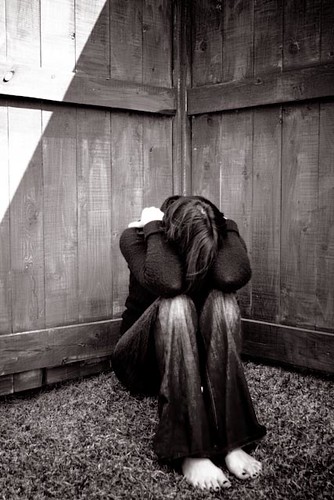 Does anyone actually believe that words can never hurt you? Come on, people—we’re writers. If there’s anything we believe in, it’s that words have power: to inspire, to move, and—yes, I’m afraid, to wound.
Does anyone actually believe that words can never hurt you? Come on, people—we’re writers. If there’s anything we believe in, it’s that words have power: to inspire, to move, and—yes, I’m afraid, to wound.
“Mean” reviews (and their counterpart, “too nice” reviews) have been a topic of much discussion for the past few months, but things reached a frenzy this past week when the New York Times published a scathing double-review of Alix Ohlin’s new novel and collection, Inside and Signs and Wonders. Writers everywhere jumped up to defend Ohlin, defend Giraldi, and question whether harsh reviews have a place in today’s literary world. Below, we present a roundup of the discussion (so far):
- First, the harsh review that sparked it all: William Giraldi in the NYT on Alix Ohlin’s novel Inside and collection Signs and Wonders. Giraldi’s review begins, “But since Ohlin’s novel lies stiffened in a morgue of mentation — since it relishes the Harlequin mauling of women and men — the inside on promiscuous display here is the inside of her characters’ precious hearts” and, I’m afraid, gets crueler from there.
- As you’d expect, reaction to Giraldi’s review was swift and furious. (See: All of Twitter.) There were more measured, reflective responses too, though. Writing instructor Michelle Hoover was in an unusually good position to comment on the incident: not only does she know both Ohlin and Giraldi (the latter is her downstairs neighbor), her own book, The Quickening, also received some harsh treatment in the pages of the New York Times. Hoover’s fellow instructor Lisa Borders weighted in too, with a thoughtful essay on the “moral obligation” of reviewers. She writes:
“In crafting this response, I’ve read Giraldi’s review several times, and I still have no idea of what Ohlin’s novel Inside is actually about […] The ideal critic, to my mind, should be able to write a negative review that allows a reader with a different aesthetic than the reviewer’s to determine that she might actually like the book.”
- On Salon, writer J. Robert Lennon, who’s dished out a few harsh reviews of his own in the past, criticizes Giraldi in his post “How to Write A Bad Review“: “Whatever the shortcomings of Ohlin’s work might be, his review does its reader a disservice — his glee at eviscerating Ohlin overshadows his analysis, and casts doubt on its veracity.” And he adds:
In the end, the literary world is basically a small city. We could maybe all comfortably occupy Madison, Wisc. And so a book review is not being read in a vacuum: when you angrily eviscerate somebody’s work, you are shitting where you eat. It is important both to support each other and criticize each other, and to find ways to do both, respectfully and constructively.
- Other writers, however, felt some sympathy for Giraldi. On Slate, Jacob Silverman stands up for tougher reviews in his essay “Against Enthusiasm: The epidemic of niceness in online book culture,” using novelist Emma Straub as an example:
“But let’s say you’re part of this web of writers, fiction-lovers, literary editors, and readers in the social-media world, and you’re assigned a review of [Straub’s novel] Laura Lamont’s Life in Pictures. What if you don’t like it? Or what if you like it, but not unreservedly? Are you willing to say so? Would you be willing to critique Straub’s novel after watching her life scroll out on social media over the last year—indeed, after likely being the recipient or admirer of some small word or act of kindness on Straub’s part?”
- (And, as you might expect, Emma Straub had some thoughts about being singled out as an example, and posted a response—“In Celebration of Enthusiasm“—on her own website, noting: “What is particularly hilarious to me is that I read Silverman’s piece directly after asking all of my Twitter followers to ‘Like’ my official Facebook page.”
The conversation will certainly continue—and we invite you to share your thoughts here on the FWR blog as well. Is there a place for harsh reviews? Is there such a thing as being too “nice” in the reviewing world? How harsh is too harsh? How nice is too nice? Does it make a difference if the writer being raked over the proverbial coals is a new writer vs. an established one? (Though even writers like Margaret Atwood were new writers dealing with bad reviews once…)
Further Reading:
- Bad reviews: even the great authors get them. Check out The Huffington Post’s list of Meanest Book Reviews.
- Read FWR’s reviewlet of Signs and Wonders and an interview with Alix Ohlin.
- Why some writers defend the “nice” review
- When are you “big enough” to handle the bad review?





